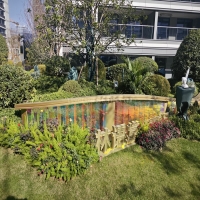Welcome to the website for landscape facilities products and knowledge.
How does the table’s design account for varying levels of user mobility or dexterity?
Modern table design has evolved significantly to address the diverse needs of users with varying physical abilities. Designers now incorporate numerous features that make tables accessible to individuals with limited mobility or dexterity challenges.
One primary consideration is height adjustability. Many contemporary tables offer electric or manual mechanisms that allow users to modify the table's height, accommodating both wheelchair users and those who prefer to stand while working. This flexibility ensures comfortable use for people of different statures and mobility requirements.
Edge design plays another crucial role in accessibility. Tables with rounded, softened corners prevent injuries for users with mobility impairments or visual limitations. Additionally, cantilevered designs that eliminate traditional leg structures provide better knee clearance and easier approach for wheelchair users.
Material selection also contributes significantly to accessibility. Designers choose surfaces with appropriate friction levels - not too slippery for those with motor control challenges, yet smooth enough for easy cleaning and maintenance. Some tables incorporate tactile elements or contrasting colors to assist users with visual impairments.
The integration of technology has further enhanced table accessibility. Touch-sensitive controls, voice-activated height adjustments, and preset memory positions allow users with limited hand dexterity to customize their table settings effortlessly. Cable management systems keep cords organized and out of the way, reducing tripping hazards and improving maneuverability around the table.
Furthermore, designers consider the approach space around tables, ensuring adequate clearance for mobility aids. The implementation of these thoughtful design elements demonstrates how furniture can be both functional and inclusive, serving users across the spectrum of physical ability without compromising on aesthetics or utility.
Related search:

Recommendation
Metal and acrylic color-changing combined curtain wall for large-scale public landscape facilities